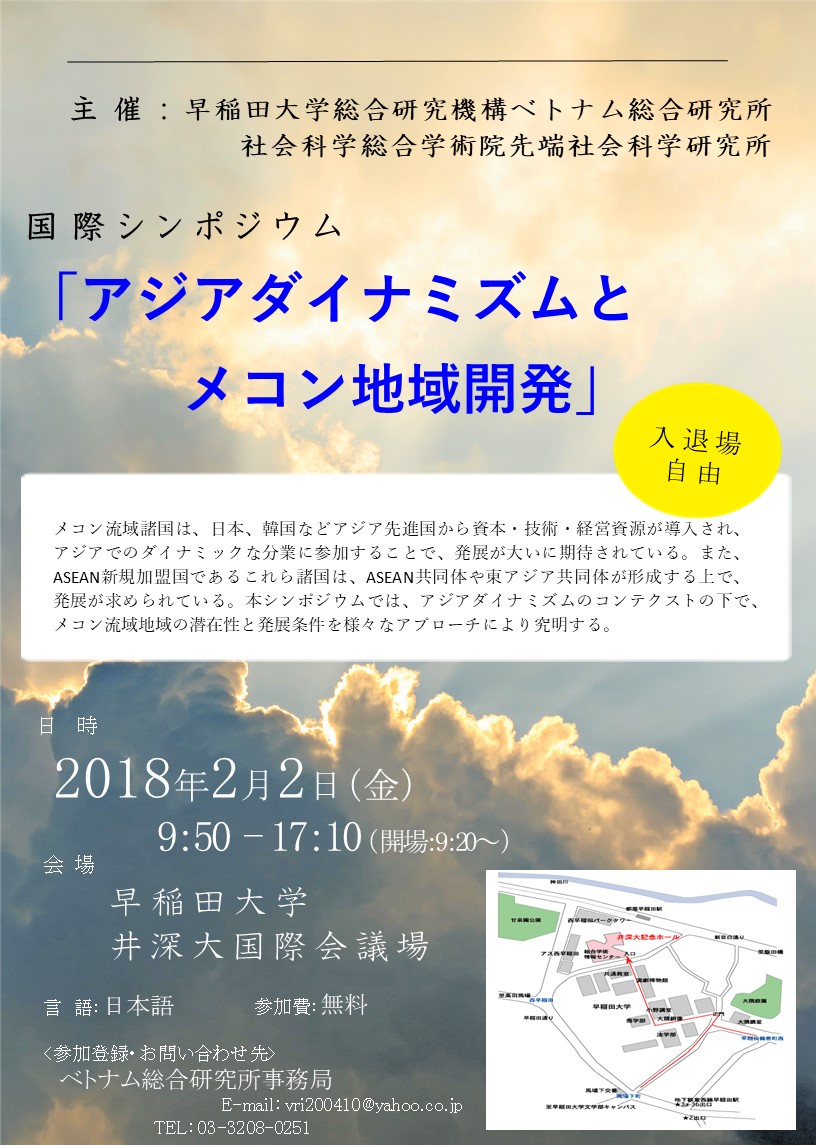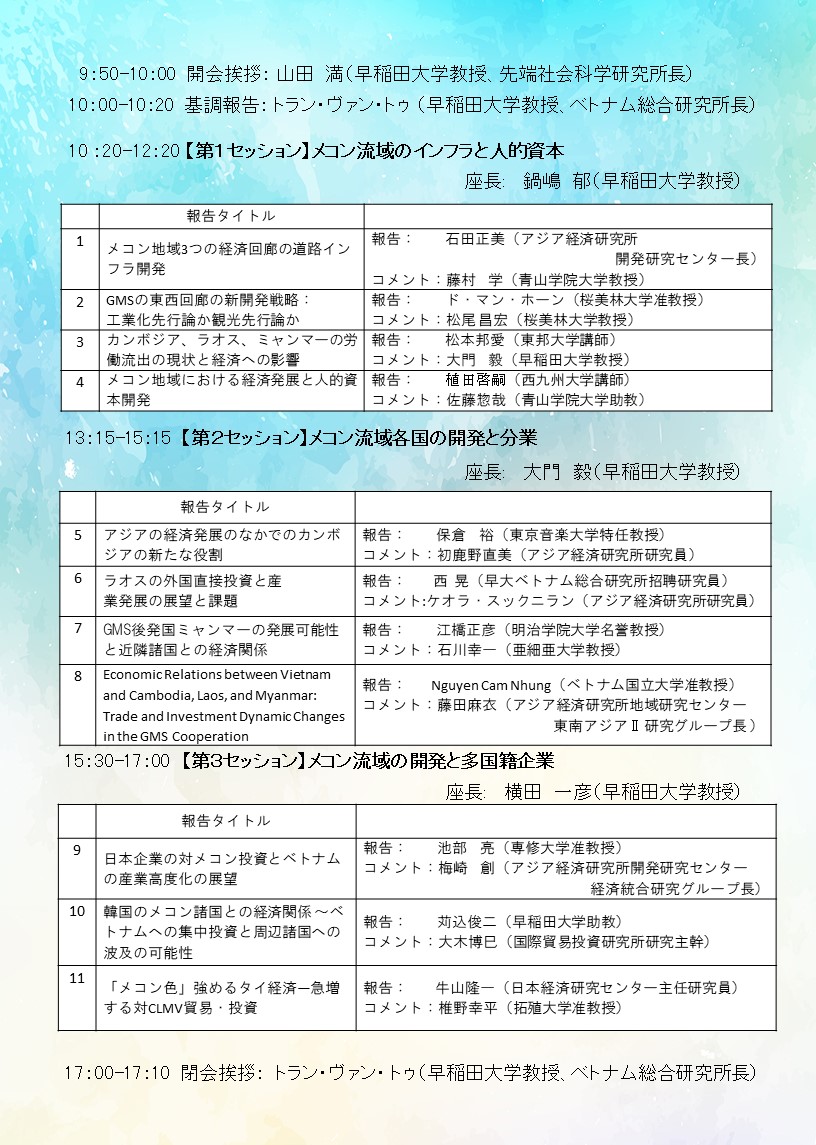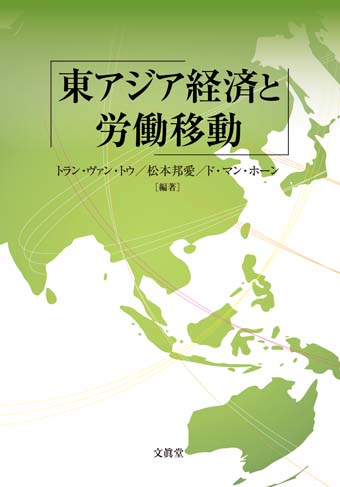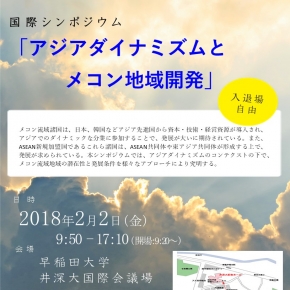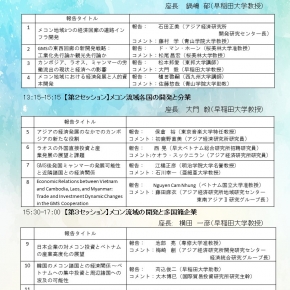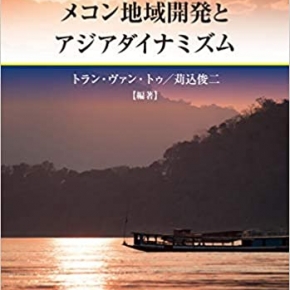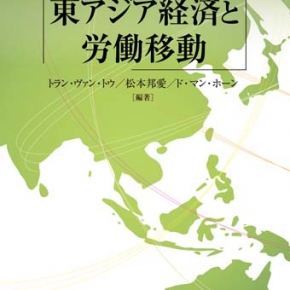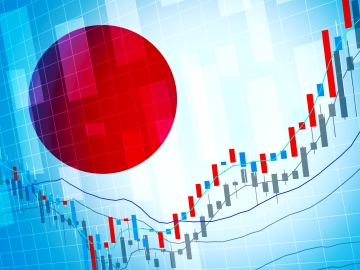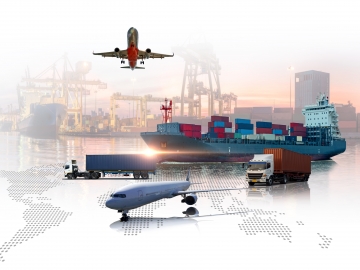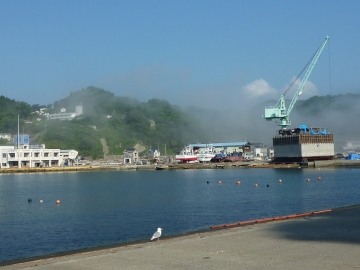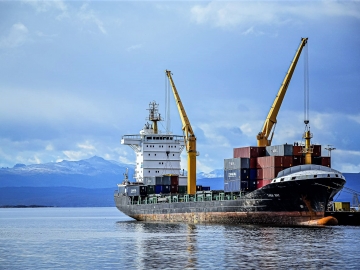Research Theme
Economic Development of Vietnam and Industrial Dynamism in East Asia
Research Director
NABESHIMA, Kaoru
Faculty of International Research and Education, Graduate School of Asia Pacific Studies
Project Members
- SHIRAISHI, Masaya
- TRAN, Van Tho
- LIU, Jie Professor, Faculty of Social Sciences, School of Social Sciences
- NABESHIMA, Kaoru Professor, Faculty of International Research and Education, Graduate School of Asia Pacific Studies
- OKUSAKO, Hajime Associate Professor, Faculty of Social Sciences, School of Social Sciences
- SATO, Takeshi Professor, Faculty of International Research and Education, School of International Liberal Studies
- YAMADA, Mitsuru Professor, Faculty of Social Sciences, School of Social Sciences
- DO MANH, Hong
- HOKURA, Yutaka
- ISHIDA, Masami
- KARIKOMI, Shunji
- MATSUMOTO, Kiyoshi
- MORI, Mutsuya
- NISHI, Akira
- SHIKAMA, Yuichi
- TRAN, Thi Hue
Research Keywords
Vietnam, industrial development, economic development, supply chain, international trade, East Asia
Research Summary
Vietnam Research Institute was established in October 2004. Since its establishment, it has worked on various issues related to Vietnam’s economic development and Japan-Vietnam relations. More specifically, we have explored the current challenges facing Vietnam, which is located in the rapidly changing Asian region, appropriate development strategy, and training of the human resources who will support sustainable development. In addition, we made policy recommendations on intergovernmental cooperation between Japan and Vietnam, foreign direct investments by Japanese companies in Vietnam, and how to make technology transfer more effective and widely disseminated our research findings.
In the 5th term, we will continue to hold regular research meetings with lecturers from academics and business practitioners interested in Vietnam, and conduct research activities focusing on the economic and social development of Vietnam and other Southeast Asian countries. The Economic development in East Asia began with Japan, followed by South Korea and Taiwan, then the advanced ASEAN countries (Malaysia, Thailand, Indonesia, and the Philippines), and China. It is no exaggeration to say that the success of economic development in the East Asian region was due to active participation in intra-regional and extra-regional trade. In particular, through trade and foreign direct investment, production factors such as capital, technology, and know-hows are transmitted from developed countries to less developed countries through investment and trade linkages, promoting internal accumulation. In addition, the region as a whole achieved rapid development while deepening mutual dependence, with a division of labor established for each process according to each country’s strengths. This kind of dynamism in Asia will continue to be the basis for the development of the Asian region.
However, the international conditions facing East Asia is currently undergoing major changes and instability is increasing. As frictions between the United States and China intensifies, each country in East Asia is forced to strategically consider its relationship with these two politically and economically important countries, as well as the impact of Sino-US tensions on regional relationships that Vietnam and other East Asian countries are involved. In this new world situation, this research project will examine the future economic development of Asia not only from an economic approach but also from an interdisciplinary perspective, with a focus on Vietnam.


